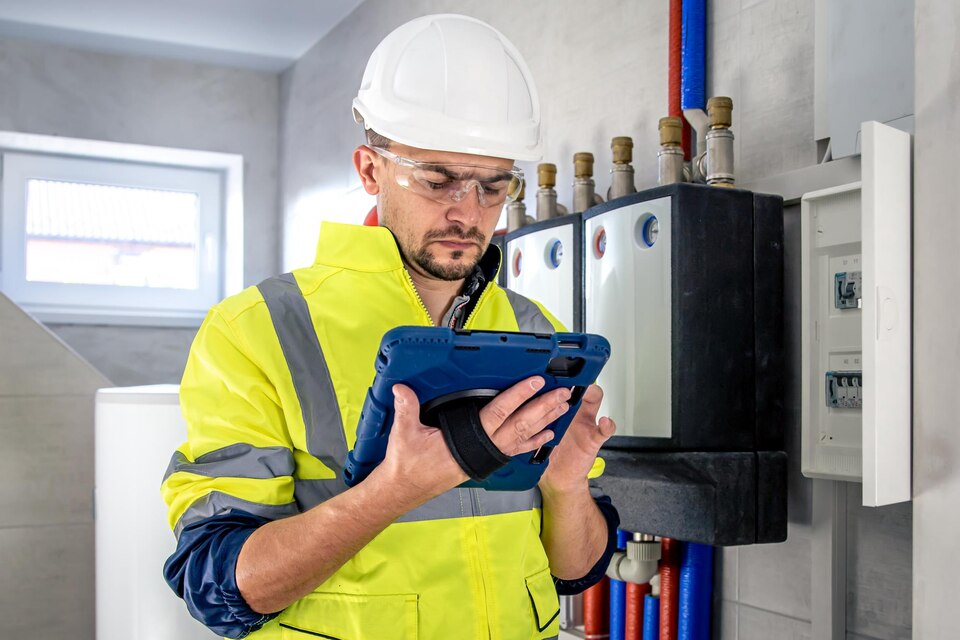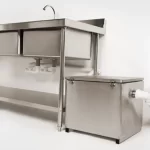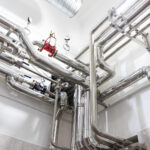As a building owner in the great state of Texas, ensuring the efficient and reliable operation of your facility is paramount. One crucial aspect of this is the Mechanical, Electrical, and Plumbing (MEP) systems. Proper commissioning and testing of MEP systems are essential to guarantee their functionality and longevity. In this article, we will explore expert tips for MEP system commissioning and testing tailored to the unique needs of building owners in Texas.
Table of Contents
Understanding the Importance of MEP System Commissioning and Testing
Commissioning and testing are vital steps in the life cycle of MEP systems. These processes involve a systematic evaluation of the system’s components to ensure they operate as intended and meet the design requirements. For building owners, this means peace of mind, knowing that your investment in MEP systems will provide optimal performance, energy efficiency, and longevity.
MEP systems, comprising heating, ventilation, air conditioning, electrical, and plumbing components, play a pivotal role in maintaining a comfortable and functional indoor environment. Commissioning and testing these systems not only validate their performance but also identify and rectify potential issues before they escalate, minimizing downtime and costly repairs.
Early Planning: A Crucial Step in MEP System Commissioning
The journey to successful MEP system commissioning and testing begins with meticulous planning. Engage with qualified professionals early in the design phase to ensure that the systems are integrated seamlessly into the building’s architecture. Collaboration between architects, engineers, and contractors is crucial to aligning the design intent with the actual construction.
Proper planning includes establishing clear performance criteria, defining testing protocols, and setting commissioning milestones. This proactive approach lays the groundwork for a smooth and efficient commissioning process, reducing the likelihood of delays and cost overruns.
Selecting the Right Team for Commissioning and Testing
Building owners in Texas must recognize the value of assembling a skilled and experienced commissioning team. Engage professionals with expertise in MEP systems, as well as a deep understanding of local building codes and regulations. This ensures that your systems not only meet industry standards but also comply with Texas-specific requirements.
Consider hiring a third-party commissioning agent to provide an unbiased evaluation of the MEP systems. Their impartial perspective can uncover potential issues that might be overlooked by in-house teams. A collaborative effort between the building owner, design professionals, and the commissioning team is fundamental to achieving a successful outcome.

Rigorous Testing Protocols: Ensuring Reliability
Once the MEP systems are installed, rigorous testing protocols must be implemented. Testing should encompass all aspects of the systems, from individual components to integrated operations. This includes assessing the efficiency of HVAC systems, the stability of electrical circuits, and the functionality of plumbing systems.
For HVAC systems, testing should cover a range of conditions to ensure optimal performance in different scenarios. This includes evaluating temperature control, humidity levels, and air distribution. Electrical systems must undergo load testing to verify their capacity and resilience under varying loads. Plumbing systems should be tested for leaks, pressure, and proper drainage.
Addressing Texas-Specific Challenges
Building owners in Texas face unique challenges, including the state’s diverse climate and occasional extreme weather events. When commissioning MEP systems, it is crucial to account for these factors. HVAC systems, in particular, must be designed and tested to handle the hot summers and occasional cold snaps that Texas experiences.
Additionally, electrical systems should be resilient to power fluctuations and storms, ensuring uninterrupted power supply during critical times. Plumbing systems need to be robust enough to withstand both droughts and heavy rainfall. By addressing these Texas-specific challenges during the commissioning process, building owners can enhance the resilience and longevity of their MEP systems.
Continuous Monitoring and Maintenance
Commissioning and testing are not one-time activities but rather ongoing processes that require continuous monitoring and maintenance. Building owners must implement a comprehensive maintenance plan to address wear and tear, prevent potential issues, and optimize the performance of MEP systems throughout their lifespan.
Regular inspections, preventive maintenance, and system optimizations should be conducted to ensure that the systems operate at peak efficiency. Monitoring energy consumption and performance metrics allows building owners to identify trends and proactively address any deviations from optimal operation.
Conclusion
In conclusion, MEP system commissioning and testing are indispensable steps for building owners in Texas aiming to maintain efficient, reliable, and resilient facilities. Through early planning, assembling the right team, rigorous testing protocols, addressing Texas-specific challenges, and implementing continuous monitoring and maintenance, building owners can safeguard their investments and ensure the long-term success of their MEP systems. By adhering to these expert tips, Texas building owners can navigate the complexities of MEP systems with confidence, contributing to the sustainable and prosperous future of their facilities.




